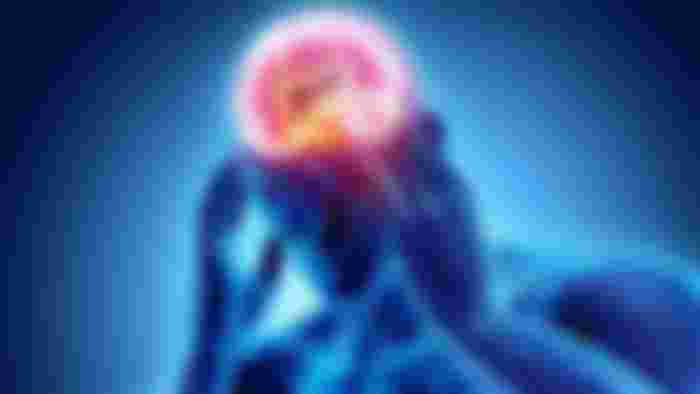There is no such valuable resource to mobilize vital resources in our body as stress, there is no greater danger to our life than being consumed by the energy capable of being deployed by stress. Enemy or ally that is the place of stress in our lives.

There is a positive stress: eustress capable of filling our life with energy and vigor, of allowing us to experience existence as the best of gifts, allowing an activation of all our Systems so that their processes are carried out in the most harmonious way. possible resulting in a healthy and sublime life.
There is a negative stress: distress, capable of turning our life into the prelude to hell, of ruining our internal organs and our entire existence, of breaking our body and soul
Stress
Stress is a non-specific response of the body to a specific stimulus (any specific demand that is requested, heat, cold, sleep, etc). Stress is always a response of a physiological nature, faced with an external or internal stressor, hormones are released that will produce remote changes in various parts of the body. These substances will affect behavior, producing a social effect in relation to one or more stressors that affect each person in a specific way.
The agent that is capable of generating distractions in a person produces eustress in another, there are learning factors that predispose to experiencing one type of stress or another in relation to each causative agent. In a certain way, we can consider negative stress as the element responsible for producing an increase in effort in relation to the maintenance of homeostasis.

We must understand that there are no objective responses, all the responses we generate are strictly particular: the interpretation, the emotion and the sensation that accompany stress are non-transferable, stress is a particular and intimate defense mechanism that can become a means of self destruction.
We are in the world and in front of the world, we need it and sometimes it hurts us, the scars strengthen or weaken us, we learn to adapt or we adapt to the maladjustment without effort, the internal and external world interact, If as a result of it I feel better, I can make a more appropriate physical or mental movement, my adaptation progresses, otherwise an instability occurs, and it facilitates the next.
Anxiety
When high levels of stress are maintained over a long period of time, inappropriate behaviors begin to appear (or reality is misinterpreted), one of them is anxiety, a state that, without being pathological at first, ends up being so.
Due to the sum of tensions and muscular overloads due to the hyperactivation of the sympathetic adrenergic system, the body becomes increasingly sensitive to minor stimuli that, even lacking in normal conditions the ability to alter the metabolic response, in a situation of hypersensitivity it ends up generating a excessive response.

A simple bell can make a person jump from his seat, or accelerate his heartbeat, repeated ad nauseam, any external stimulus seems to be capable of triggering a burst, which will result in an increase in heart rate, acceleration of respiration, elevation of blood pressure, lipid dumping into the bloodstream, and a long etc. absolutely unnecessary for such a minimal detonator.
Stress external causes In general, the excessive response that is observed in people altered by stress has a multiple origin. It is difficult, although not impossible, for a single stressor to generate an abnormal response of excessive stress, the common thing is that the accumulation of stressors triggers a situation in which the next stimulus overflows the vessel.
The worst thing is that with the passage of time the body accumulates tension, the muscles become the hard disks of tension, there is a discharge in the motor plate that is as permanent as it is unnecessary that, although unconscious, affects the waking state, since exhaustion that produces decreases the energy needed for things as simple as paying attention or making a voluntary and sustained effort, a problem of muscular origin will end up affecting the circulatory system due to the overexertion that the heart has to make to overcome the resistance imposed by the muscles on the arteries and so it will happen in a chain with the rest of the systems and the general functioning of the body as a whole: as in a pyramid of cards, each one falling on the other ... it gives way, they still hold, but until when?
Ungrateful demands put pressure on us, the musculature responds to the load with tension, the central nervous system reads the musculature, and a negative emotion invades.
Ungrateful demands put pressure on us, the musculature responds to the load with tension, the central nervous system reads the musculature, and a negative emotion invades our being. The poison of tension spreads, the distress in action, and the structure
Distress
We could define distress as unpleasant stress. It is a stress that causes an excess of effort in relation to the load. It is always accompanied by a physiological disorder, the catecholamines produce an acceleration of the functions and these act away balance, from the point of hyperactivity, muscular, shortening somatizations, in short: aging are the premature side effects of negative stress.
They can be stressors: As the family, work, diseases, the climate, alcohol, frustrations, tobacco, the in sum hundreds of internal external stimuli of a physical, chemical or social nature. Even an excess of positive stress can be a cause of distress, from when the team itself wins to luck in games of chance, in both cases there are heart attacks due to excess jubilation. We can contemplate how on few occasions we have within our reach to choose the impressions that affect us, however it is possible to learn to respond in a balanced way, relaxation helps in this sense very effectively.

Origins of stress
There are innumerable external and internal agents capable of producing an impact on our nervous and hormonal systems, of such intensity that they are experienced as distress, it is not necessary that the triggering agent be very powerful, it is enough that the response to it is. This is precisely what gives us an opportunity, we can hardly influence the agent but we can always do it with the answer, we can at least try.
We can divide the causes of stress into classes, although this will only give us an approximate idea, since it is the combination of agents from different sources that ends up causing excessive responses.
Causes
1. Social: work, family, other relationships.
2. Biological: diseases, events linked to degenerative processes.
3. Chemicals: alcohol, tobacco, drugs.
4. Climatic: cold, heat, etc.



